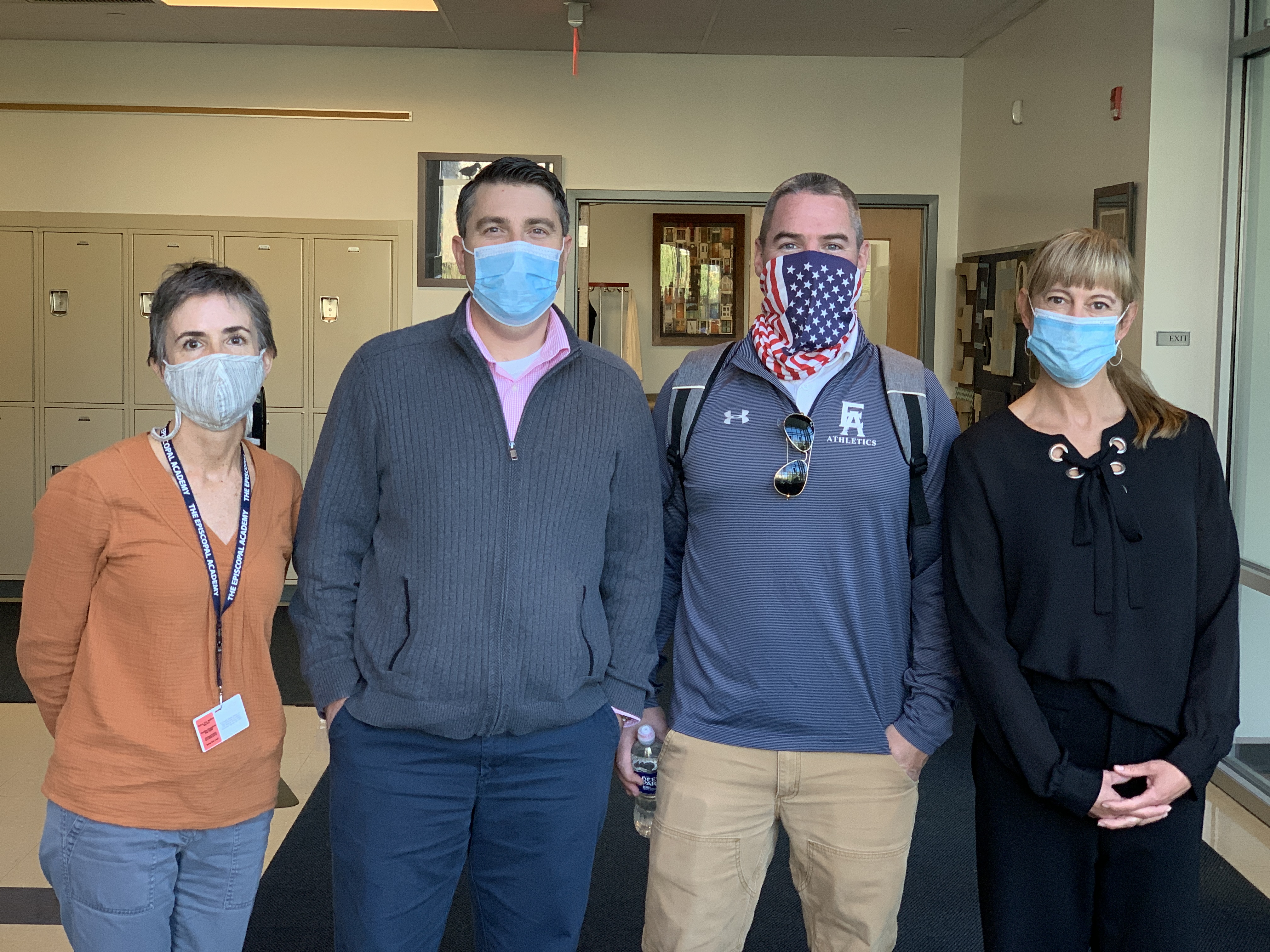By Isabel Rozes ‘24
Starting this year, the student body will no longer elect their representatives for the Disciplinary Committee; rather, through a separate application, faculty members will choose members from the IV, V, and VI forms to serve on the committee. These students will no longer serve as part of the Student Council.

Photo courtesy of Ashley Kennedy ’22.
The Discipline Committee is comprised of four Upper School faculty members and select members of the student body. Currently, the faculty members are Jennifer Maier, the Chair of the Discipline Committee, Kris Aldridge, John Dilworth, and Eric Mundy. Students serving on the committee have tremendous power as their vote on how to discipline a student carries just as much weight as those faculty.
Students interested in serving on the committee self-nominate and go through a selection process. Faculty representatives will select student applicants. According to Michael Letts, Head of Upper School, the student members of the Discipline Committee continue to serve on the committee for their remaining years of high school. Maier said, “Applications are due on November 4th, so it is my hope and expectation that the representatives will be announced the following week, but in any case, definitely before the Thanksgiving holiday.”
Maier emphasized that the Discipline Committee is an important part of the community, students are part of the process, and “we care deeply about our community standards and living up to those standards.” As Mr. Dilworth expressed, “I think it is an important component of the school. It gives faculty and students a chance to go through a disciplinary process and arrive at a fair decision or outcome.”
Maier stressed that important features for student committee members are trust, seriousness and understanding the requirement that all matters discussed must be kept confidential. In regards to the importance of confidentiality, Letts states, “I feel very strongly that even in cases that are a second major offense, that you […] deserve the right to privacy.”
In previous years, the Discipline Committee representative served on Student Council, but this is no longer the case. The committee is now not determined by an election process. According to Letts, this is because “the responsibility is pretty extraordinary and the faculty members of the committee need to have a say in who joins the committee. Every student can apply, but now the faculty committee members can have a say.” There is some concern that this new process will restrict the voice of the student body. Alex Zhou ‘21 explains, “The old system allowed the student body to have direct input on the disciplinary committee because of the election process, but that was stripped from us under this new system.”
However, according to Ashley Tang ‘22, who was on the committee in 2018, the new application process now gives more opportunities for students because before this year, the position was a part of the Student Council. The position being a part of the Student Council may have restricted students from running or being elected. The removal of a public speaking aspect may motivate more students to apply.
Jonathan Shanahan ‘21 has already been named to serve on the committee. He shares, “I believe having a student perspective on the committee is invaluable when it comes to helping the teachers understand student issues. For example, the students on the committee can explain social media to the teachers when cases of misuse of technology come before the committee.”
The Discipline Committee works the same as in previous years. It follows a process detailed in the US Student Handbook when a student violates the codes of conduct. Student conduct infractions are categorized into four tiers. The Discipline Committee reviews Tier 2 and Tier 3 student-conduct violations. A separate committee, the Student Integrity Council, reviews Tier 1 violations.
Maier explained that the committee assesses what happened and how the “violation of code of conduct affected that student, the students that were most directly affected, and the community as a whole.” After review, the Discipline Committee makes a recommendation to Letts and T.J. Locke, Head of School, on the appropriate course of restorative action or punishment for each student. Letts and Locke make the final determination.